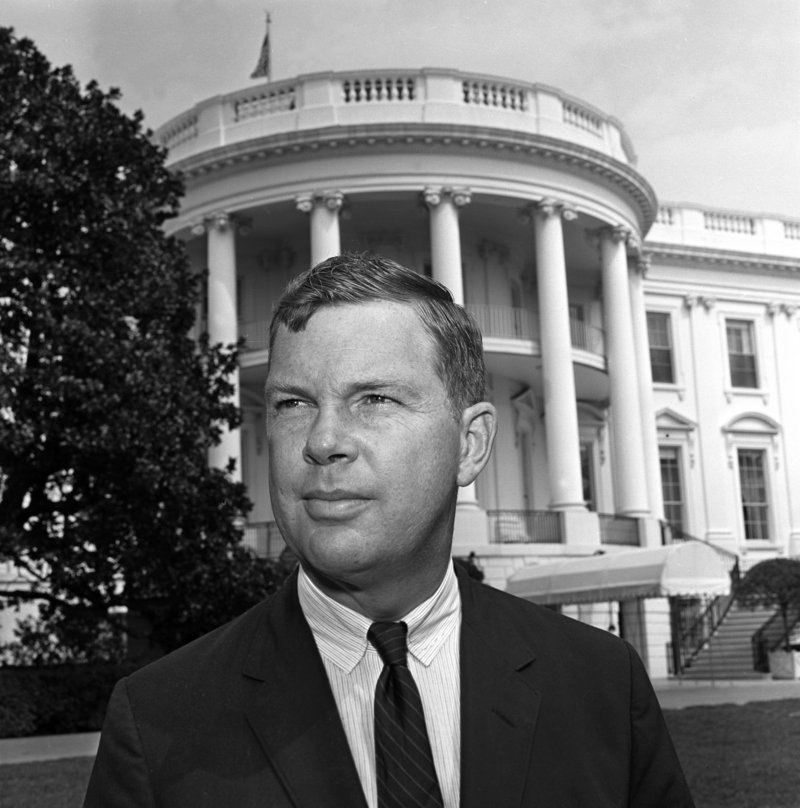MONTPELIER, Vt. – Tom Wicker, the former New York Times political reporter and columnist whose career soared following his acclaimed coverage of the assassination of President John F. Kennedy, died Friday at his home in Rochester, Vt. He was 85.
Wicker died after an apparent heart attack Friday morning, his wife Pamela said.
“He’d been ill with things that come from being 85,” she said. “He died in his bedroom looking out at the countryside that he loved.”
Wicker grew up in poverty in Hamlet, N.C., and wanted to be a novelist, but pursued journalism when his early books didn’t catch fire. He worked at weekly and daily newspapers in North Carolina before winning a spot as a political correspondent in the Times’ Washington bureau in 1960.
Three years later, he was the only Times reporter to be traveling with Kennedy when the president was shot in Dallas.
Gay Talese, author of the major history of The New York Times, wrote of Wicker’s coverage: “It was a remarkable achievement in reporting and writing, in collecting facts out of confusion, in reconstructing the most deranged day in his life, the despair and bitterness and disbelief, and then getting on a telephone to New York and dictating the story in a voice that only rarely cracked with emotion.”
One year later, Wicker was named Washington bureau chief of the Times, succeeding newspaper legend James Reston, who had hired Wicker and called him “one of the most able political reporters of his generation.”
In 1966, Wicker began his “In the Nation” column, becoming, along with colleague Anthony Lewis, a longtime liberal voice on the Op-Ed page. Two years later he was named associate editor of the Times, a post he held until 1985.
He ended his column and retired to Vermont in 1991 but continued to write. He published 20 books, ranging from novels about gritty, hard-scrabble life in the South to reflections on the presidents he knew.
Among his books was “A Time to Die,” winner of the Edgar Allan Poe Award in 1976, which recounted Wicker’s 1971 experience as an observer and mediator of a prison rebellion at New York’s Attica prison.
Wicker, the son of a railroad man, started in journalism in 1949 at the weekly Sandhill Citizen in Aberdeen, N.C., where he was paid $37.50 a week to report on such local news stories as the discovery of “the first beaver dam in anyone’s memory on a local creek.”
He moved on to a local daily and then to the larger Winston-Salem Journal, where he worked for most of the 50s, with time out in 1957-58 to serve as a Nieman fellow at Harvard University. He went to work for the Nashville Tennessean in 1959 and a year later was hired by Reston.
In mid-1961, when Times veteran Bill Lawrence abruptly quit his post as White House correspondent in a dispute with management, Wicker got the assignment. He said it was a dream assignment — “sooner or later most of the government’s newsworthy business passes through the White House” — and especially covering the excitement of the Kennedy era.
On Nov. 22, 1963, Wicker was in the first press bus following the Kennedy motorcade when the president was assassinated. He later wrote in a memoir that the day was a turning point for the country: “The shots ringing out in Dealey Plaza marked the beginning of the end of innocence.”
At that moment, however, all he knew was that he was covering one of the biggest stories in history. “At first no one knew what happened, or how, or where, much less why,” he later wrote. “Gradually, bits and pieces began to fall together.”
Wicker dictated his story from phones grabbed here and there, with most of his writing done at a desk in the upper level of the Dallas airport. “I would write two pages, run down the stairs, across the waiting room, grab a phone and dictate,” Wicker later wrote. “Dictating each take, I would throw in items I hadn’t written, sometimes whole paragraphs.”
Although Wicker didn’t even have a reporter’s notebook that day and scribbled all of his notes on the backs of printed itineraries of the presidential visit, his story captured the detail and color of the tragic events.
Send questions/comments to the editors.



Success. Please wait for the page to reload. If the page does not reload within 5 seconds, please refresh the page.
Enter your email and password to access comments.
Hi, to comment on stories you must . This profile is in addition to your subscription and website login.
Already have a commenting profile? .
Invalid username/password.
Please check your email to confirm and complete your registration.
Only subscribers are eligible to post comments. Please subscribe or login first for digital access. Here’s why.
Use the form below to reset your password. When you've submitted your account email, we will send an email with a reset code.